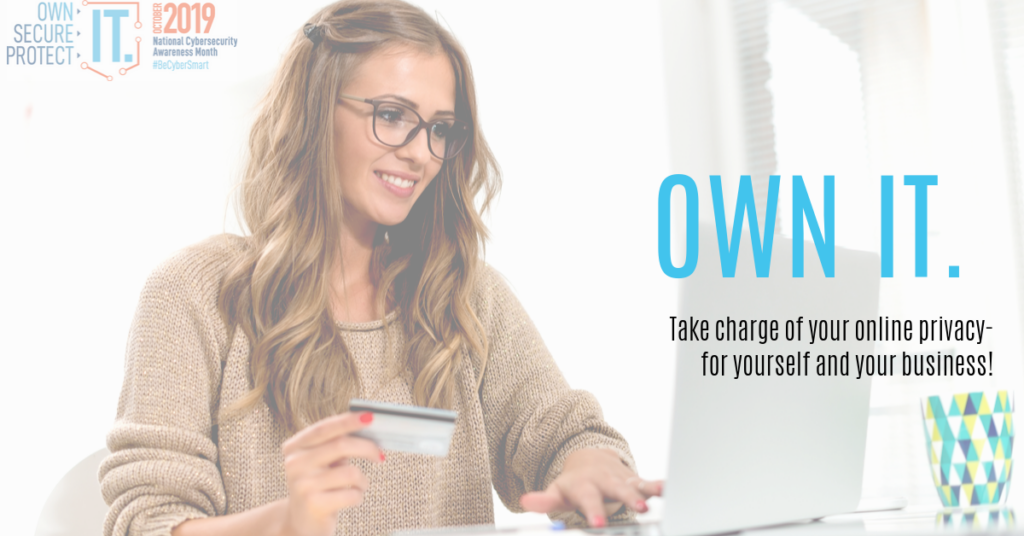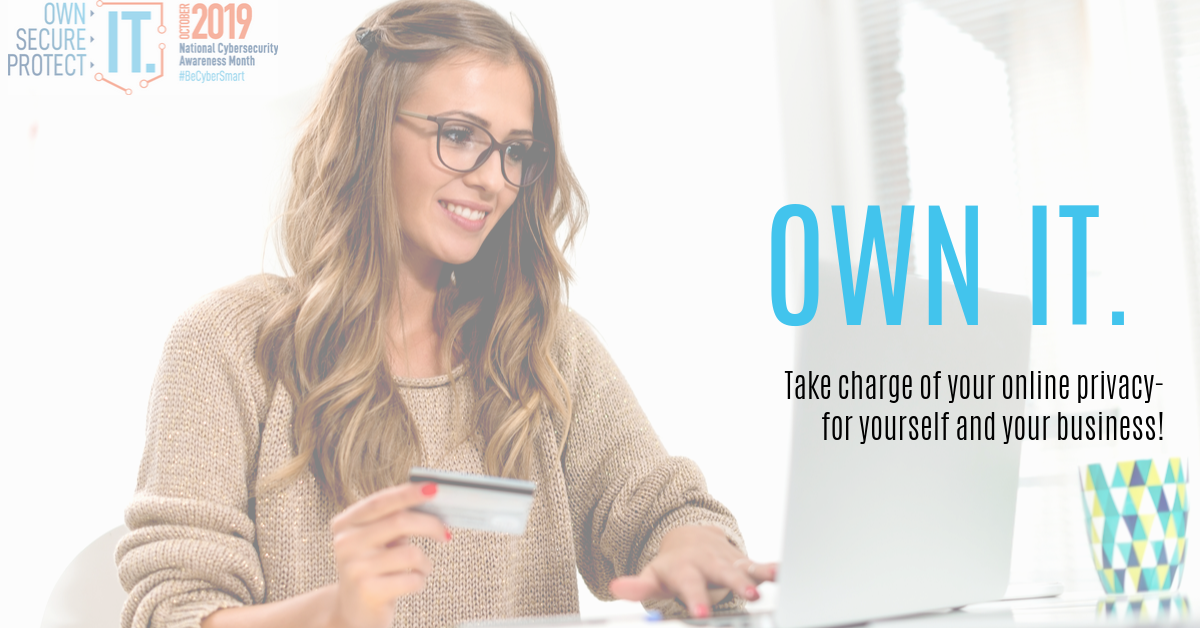Cyber Security Month 2019: Own It.

When it comes to online privacy, it’s easy to be vulnerable to cyber security attacks. Especially in today’s world, the internet interacts with all parts of our daily lives- our communication, our shopping, our work, even our bank accounts and medical records. All of this information is susceptible security breaches, which are more common than you may think. A 2017 study showed that “64% of U.S. adults” have encountered an online “major data breach affecting their sensitive accounts or personal data.”
So how can you “Own It” when it comes to your online privacy? Here are 7 tips to follow to protect yourself and your business:
1. Double your login information: Enable multi-factor authentication (MFA) to ensure that the only person who has access to your account is you. Use it for email, banking, social media, and any other service that requires logging in. If MFA is an option, enable it by using a trusted mobile device, such as your smartphone, an authenticator app, or a secure token—a small physical device that can hook onto your key ring.
2. Shake up your password protocol. According to NIST guidance, you should consider using the longest password or passphrase permissible. Get creative and customize your standard password for different sites, which can prevent cyber criminals from gaining access to these accounts and protect you in the event of a breach. Use password managers to generate and remember different, complex passwords for each of your accounts.
3. Be up to date. Keep your software updated to the latest version available. Maintain your security settings to keeping your information safe by turning on automatic updates so you don’t have to think about it and set your security software to run regular scans.
4. If you connect, you must protect. Whether it’s your computer, smartphone, game device, or other network devices, the best defense against viruses and malware is to update to the latest security software, web browser, and operating systems. Sign up for automatic updates, if you can, and protect your devices with anti-virus software.
5. Play hard to get with strangers. Cyber criminals use phishing tactics, hoping to fool their victims. If you’re unsure who an email is from—even if the details appear accurate— or if the email looks “phishy,” do not respond and do not click on any links or attachments found in that email. When available use the “junk” or “block” option to no longer receive messages from a particular sender.
6. Keep tabs on your apps. Most connected appliances, toys, and devices are supported by a mobile application. Your mobile device could be filled with suspicious apps running in the background or using default permissions you never realized you approved—gathering your personal information without your knowledge while also putting your identity and privacy at risk. Check your app permissions and use the “rule of least privilege” to delete what you don’t need or no longer use. Learn to just say “no” to privilege requests that don’t make sense. Only download apps from trusted vendors and sources.
7. Stay protected while connected. Before you connect to any public wireless hotspot—such as at an airport, hotel, or café—be sure to confirm the name of the network and exact login procedures with appropriate staff to ensure that the network is legitimate. If you do use an unsecured public access point, practice good Internet hygiene by avoiding sensitive activities (e.g., banking) that require passwords or credit cards. Your personal hotspot is often a safer alternative to free Wi-Fi. Only use sites that begin with “https://” when online shopping or banking.
For more cyber security tips and information, check out the National Cyber Security Alliance (https://staysafeonline.org/ncsam/) and stay tuned the rest of Cyber Security Month.

